VJ DAY: The end of World War II, and what the war meant to India
By Newsmeter Network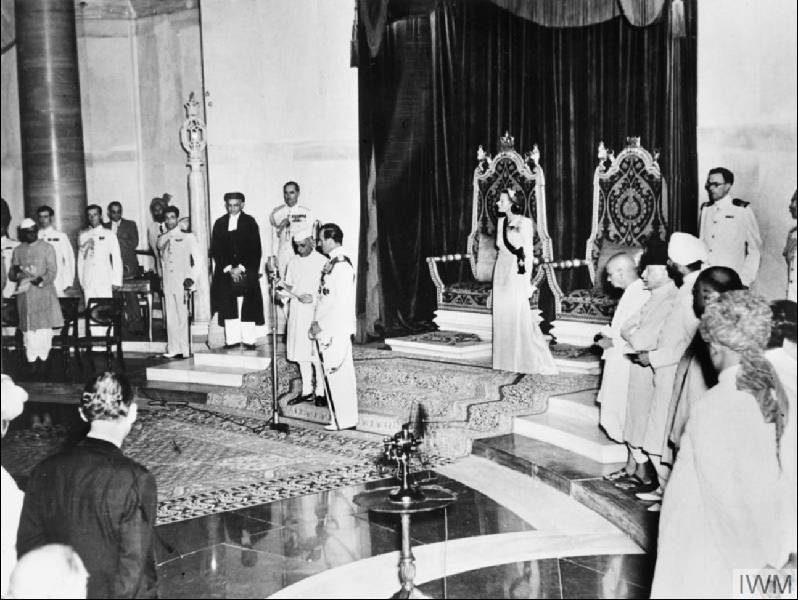
By KS Nair
Apart from being our Independence Day, 15 August is also Victory Over Japan Day, or VJ Day; the day that the Second World War (WW2) finally ended. This year, in fact, it is the 75th anniversary of the end of the War.
There are good reasons for India to remember the day for that reason too; for the historic reality is that far from being a purely colonial enterprise, the War put in train several processes which, in exactly two years resulted in Independence for India. And that would start a decolonization process which would bring independence in a few years more to numerous other former colonies.
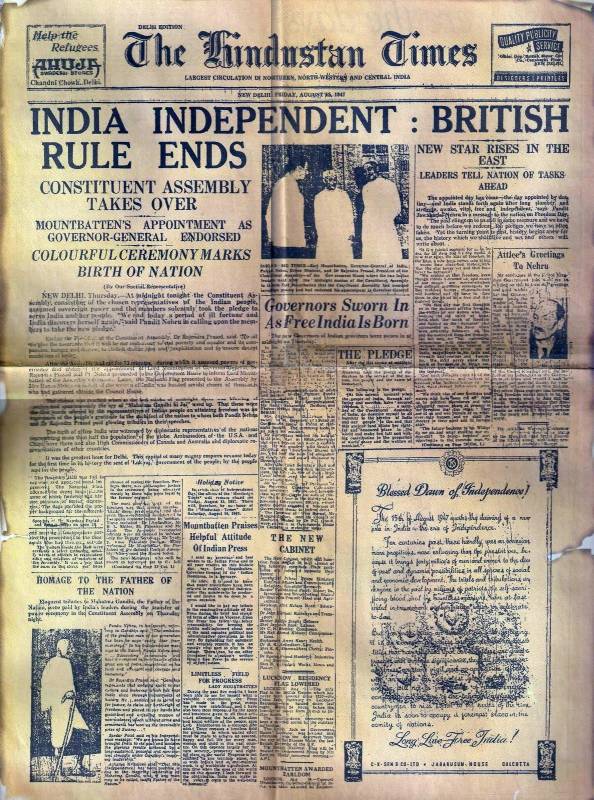 The Hindustan Times, August 15, 1947
The Hindustan Times, August 15, 1947
A simple interpretation of WW2 is to consider it a war between the three major Axis powers, Germany, Italy, and Japan, against three major Allied powers, Great Britain, the Soviet Union, and the USA. The reality was far more complicated – alliances were complex and shifted during the war itself.
This by now has been said quite often, but it is worth repeating, as the first point about WW2 that Indians should remember: India provided the largest volunteer army to the war. (A handful of other countries mobilized more soldiers, but only through compulsory military service.) In addition, WW2 was the largest industrial-age war ever fought by Indians.
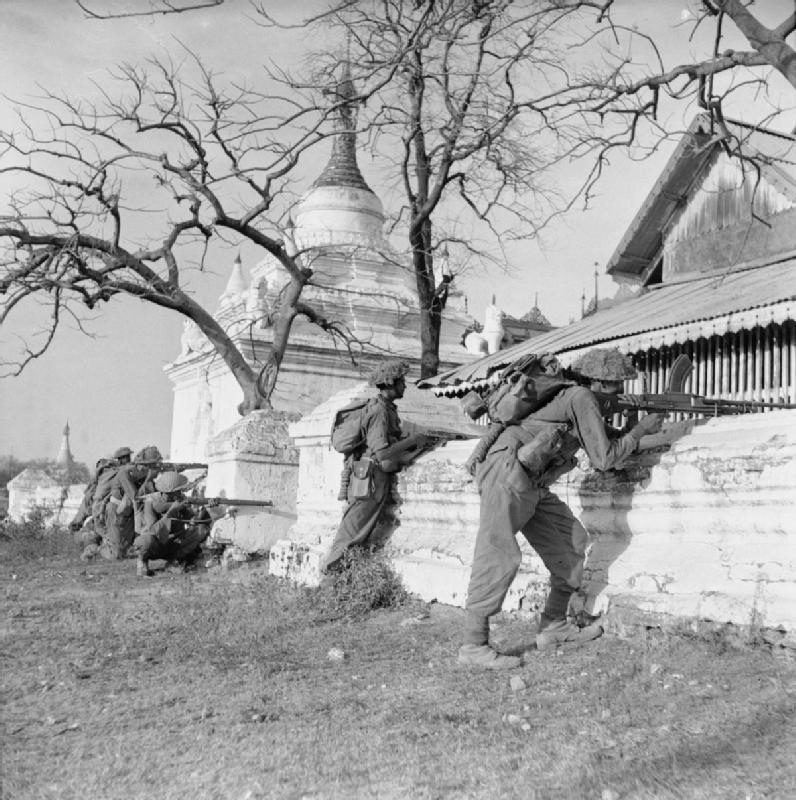 Indian soldiers in Burma
Indian soldiers in Burma
One of the counter-intuitive points about India's participation in WW2, particularly during this year, which has seen the first deaths in decades from fighting between India and China is that the Indian Army’s largest land campaign was fought to protect China. That was the Burma campaign, where something like a million Indian troops were involved.
Japan and China had been fighting each other from the early 1930s onwards - and India was involved, in a small way, even before WW2 "officially" broke out, in supporting China. At that stage, Subhash Chandra Bose was fund-raising and making speeches in favor of China, and against Japan, which he would ally with later. Once the Americans entered the war, it was important to them to keep China supplied and fighting. And India was the crucial base, to enable them to do so.
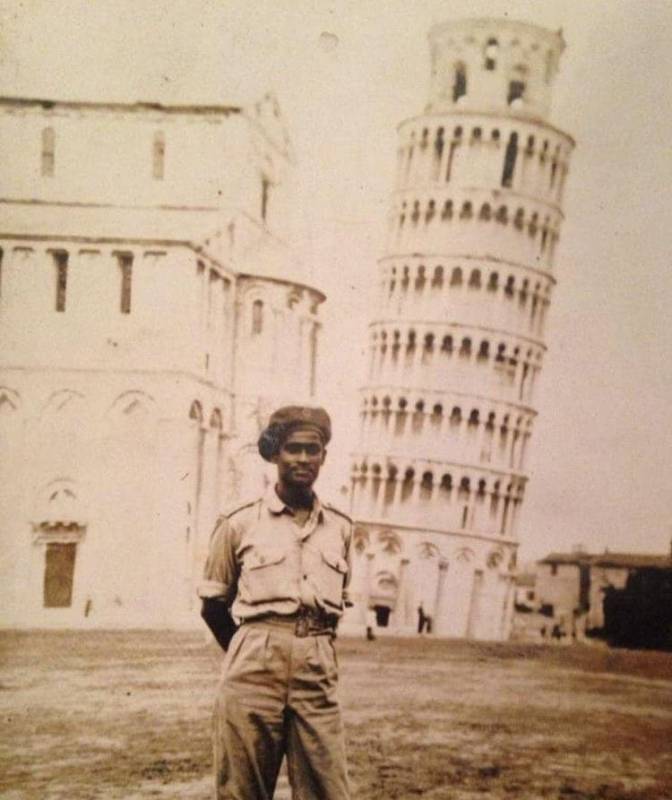 Indian soldiers in Italy
Indian soldiers in Italy
Interestingly, and largely forgotten, the most effective Chinese troops (and a small number of Chinese pilots) during WW2 were trained in India, at Ramgarh in Bihar, and Ambala in Punjab. A massive training center was set up in Ramgarh, financed by the American government. A detailed account of that center is here.
Modern China has, after some decades of denial, come round to claiming credit for its participation in WW2, largely to bolster its standing as “a responsible great power”. But while we acknowledge the enormous suffering of the Chinese people (who suffered something like twenty times the casualties suffered by the UK or the US), it should be remembered that the leadership of China’s opposition to the Axis during WW2 has not resided in modern China, the People’s Republic of China, for decades. Almost immediately after the end of WW2, the entire structure of that leadership was forced out of mainland China by the Chinese Communist Party, and had to move tithe island then known as Formosa, now the Republic of China i.e. Taiwan
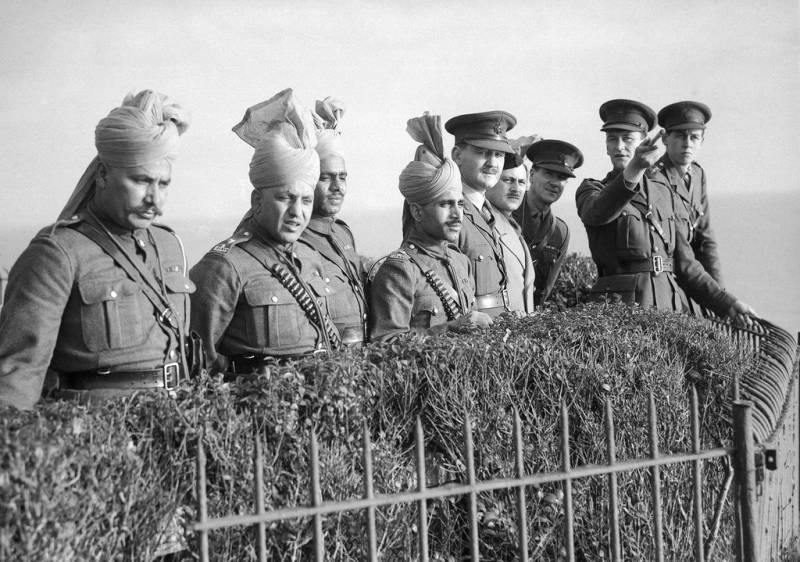 Indian soldiers in UK
Indian soldiers in UK
For India and her armed forces, there were many wartime involvements, in many different theatres of the War. Indian soldiers traveled to, fought, liberated territories and helped start the rebuilding efforts, in Europe, the Middle East and North Africa, in East Africa, in Burma and several territories of Southeast Asia (in Siam, the Dutch East Indies and Malaya among others, which were to become modern Thailand, Indonesia, and Malaysia respectively), and in parts of the Western Pacific. After Japan’s surrender Indian troops, and one squadron of the Indian Air Force, were part of the Occupation Forces garrisoning Japan itself, for nearly two years after the war ended. Part of their story is here.
And in turn, soldiers and other wartime functionaries of many other countries came to India, to work and further the war effort, in unparalleled numbers, and from an unparalleled diversity of countries and territories, during the war. Apart from the British, there were personnel in or alongside the Indian armed forces from Australia, Canada, New Zealand, South Africa, and West Africa, among British Dominions and colonies; and also from Belgium, Burma, Czechoslovakia, France, Malaya, Turkestan, and a remarkable range of other countries and territories.
And as it happens, India had to shoulder significant mopping-up responsibilities, even after the formal end of the war. Indian servicemen continued fighting (and dying) for over a year after the war officially ended; mostly in parts of Asia where the decolonization process had not yet begun or was violently contested.
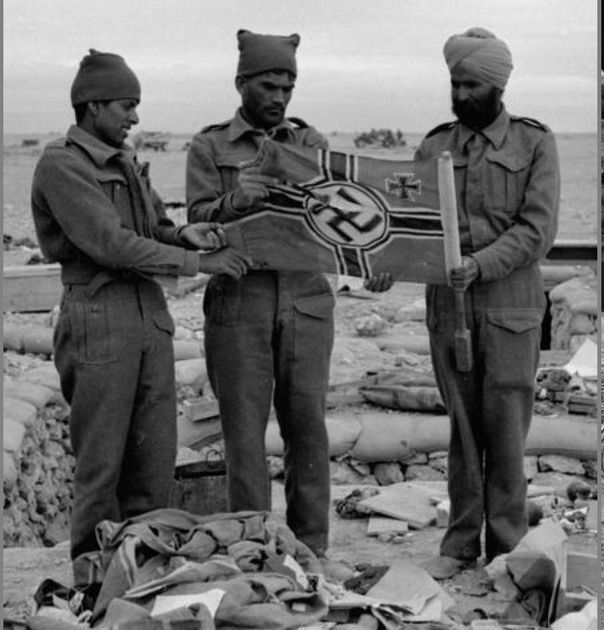 Indian soldiers in North Africa
Indian soldiers in North Africa
So did India gain from this massive effort and sacrifice? As we have said, the Burma campaign component of the War, where 80% of the fighting troops were Indian, was fought largely to preserve China – but it did wind up being in part to protect India, even if incidentally. If Japan had broken through from Burma to the Assam valley, the results would almost certainly have been a catastrophically different end to the War. The world and the country we live in would look very different, and almost certainly not for the better.
And exactly two short years to the very day after-J Day, India gained her Independence, as we have said, largely because of factors set in a train or exacerbated by the War. And with that, she embarked on the huge tasks of nation re-building and finding her place in the modern world; the first among the colonized nations of the 18th and 19th centuries to take those steps. And for bringing that about, the Indian armed forces, and their participation in World war 2, deserve some share of the credit.
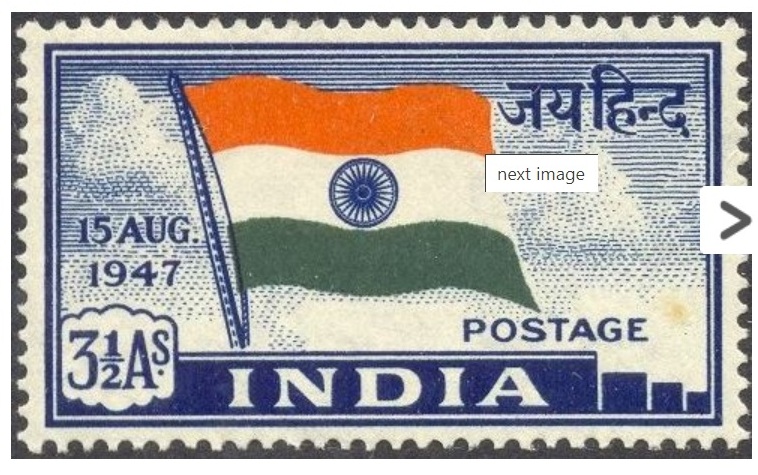 Independence Day 1947 Stamp
Independence Day 1947 Stamp
Whether they are conscious of it or not, Indians of the 21st century are all, in some ways, the inheritors of India’s participation in the Second World War. While celebrating our Independence, it is good to remember the Second World War, that trial by fire which helped nudge our Independence to fruition, 75 years ago.
(KS Nair is a lifelong student of Indian military and aviation history and the author of over 60 articles and two books. His most recent book, The Forgotten Few, tells the story of the Indian Air Force during World War II.)